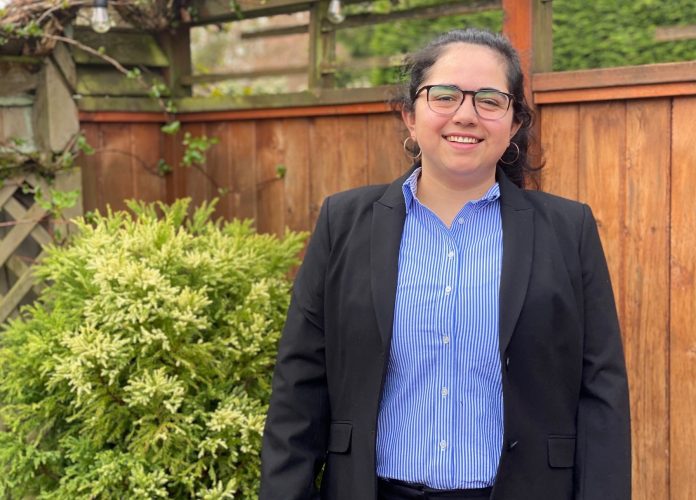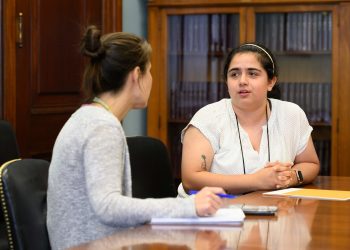
In recognition of Mental Health Month, On the Pulse will be sharing valuable resources and inspiring patient stories each week to guide individuals and families struggling with mental health issues and help destigmatize the topic of mental health in our society.
Talking about mental health can be a challenge for anyone. Though terms like obsessive-compulsive disorder (OCD), depression, and bipolar disorder have made their way into our vocabularies, they’re often used as adjectives to describe behavior, like, “I keep changing my mind about what to wear, I’m so bipolar,” reflecting a lack of understanding of the complexities and challenges facing those living with the condition.
While we all may experience occasional anxiety or changes in mood, the core feature of many mental health conditions is the disruption they cause and the negative impact they have on a person’s life. Psychologist Dr. Sam McGinnis of Seattle Children’s Psychiatry and Behavioral Medicine clinic has heard the anger and frustration from patients whose peers casually joke about self-harming or having OCD.
 “When people say those things, it takes away the significance for people who struggle with these diagnoses,” McGinnis said. “They don’t realize how painful it is to have suicidal thoughts often, or struggle with obsessive thoughts or the stress that comes from it. Jokes and comments can be very triggering for people managing a mental health condition.”
“When people say those things, it takes away the significance for people who struggle with these diagnoses,” McGinnis said. “They don’t realize how painful it is to have suicidal thoughts often, or struggle with obsessive thoughts or the stress that comes from it. Jokes and comments can be very triggering for people managing a mental health condition.”
Javi Barria has experienced this firsthand. As a teenager, Barria struggled with anxiety, depression and thoughts of suicide, and spent time at Seattle Children’s Psychiatry and Behavioral Medicine Unit. Now a college student, she is successfully managing her mental health, though she doesn’t forget the pain of her earlier struggles.
“Something I’ve encountered a lot in college has been people saying, ‘Oh my gosh, my life sucks. I want to go kill myself,’” Barria said. “As someone who has been in that position where they did feel like that was the only way out, it’s something that’s really hard to hear because it’s like, well, why are you taking it so lightly?”
Being mindful of language is one simple thing we can do to support those with mental health conditions, and to decrease the associated stigma. As Barria said, “you never know what someone else is going through, so those topics that are super serious and intimate should not be joked about. In my ideal world, when people hear a joke or a comment about wanting to kill yourself or about the ‘loony bin’ or the ‘funny farm,’ people will stand up and people will say ‘that’s not okay.’”
Here are a few things you can do:
- Use person-first language.
- People are more than their conditions. By saying things like “he has bipolar disorder,” rather than, “he’s bipolar,” we can show that we recognize someone is a person first and foremost.
- Don’t use mental health words as adjectives.
- Recognize that mental health conditions are complex and nuanced, and don’t use terms like OCD or bipolar to describe your closet or the weather.
- Consider how you use words like “crazy” or “insane.”
- Be mindful when talking about suicide.
- Say a person “died by suicide” instead of “committed suicide.” Don’t talk about suicide attempts being “successful” or “unsuccessful.”
In addition to paying attention to your own language, you can be an ally by encouraging others to do the same, when it feels safe to do so. You can start by getting curious and asking people to say more when they describe themselves or other things as “OCD” or “bipolar.”
If you, your child or family needs help right away, call your county’s mental health crisis number. In King County, call 866-427-4747. You can also text HOME to 741741 or call the National Suicide Prevention Lifeline, 800-273-8255, from anywhere in the U.S. If you or a family member has a problem with a substance use disorder, please consider calling the Washington Recovery Help Line, 866-789-1511.

